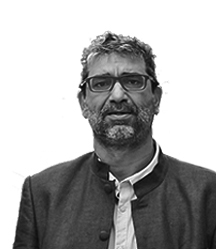
The National Security Security Act is not a drama in itself. It is necessary in the context of Chinese nationalism, but it exists in all geographies and political systems. In Macau, analyzing the legislative process, one can see the specific care with the theme. That is, there is official awareness of the fears about the danger of State abuses. They will not be out of place at all… but it is also premature – even counterproductive – to previously condemn a Law without formal guilt. The fundamental question, in such a sensitive matter, is the intention of the legislator and its application culture. That is, in the way in which the political power and the courts come to apply it. That should be the focus of the debate.
The Commission’s report answers many of the doubts and fears. It is urgent to understand what is there, under penalty of trivializing the criticism and losing its legitimacy. Roman law, which inspires Portuguese law, includes very open rules, precisely so that they last over time and fit evolutionary trends. Therefore, there are two essential concepts: the intention of the legislator and its law enforcement culture. Perceiving the proponent is therefore also tomorrow compromising the regime now with the explanations it gives today.
So what does the Macau Government say, within the framework of strategic obedience to the Central Power? That possible abuses in the manipulation of the Security Law will be contained by the values of the great codes, namely the Penal Code. It also refers to the Press Law, with regard to freedom of expression. It is in these references, says the proponent, that the question of fraud is also resolved – omission in the Law. In other words, if there is no intent, there is no crime. This interpretation is crucial. It clarifies anxieties and compromises political power.
The basic issue is always the same: in China it is one thing, in Macau it has to be another. This is the essence of autonomy; it is the letter of the Basic Law – and the civilizational trait that shapes it. It is a fact that today’s single party in China favors collectivism over individual rights, freedoms and guarantees, seeing the State as an instrument of the Communist Party and the Security Law as a guarantor of the status quo.
But it is the regime itself that ensures that, in Macau, the legal philosophy prevailing in China would destroy the very essence of the difference that Beijing – and no one else – designed for the Macao SAR. If everything was to be the same it would have been a long time ago.
But it is also true that, in Hong Kong and Macau… cases such as the persecution of booksellers, or the barrage of uncomfortable deputies, are clear examples of illegitimate integration into practice of concepts specific to the communist dictatorship – and not to the autonomous regions. Beijing’s decisions, implemented by local governments, which show little or no scope for tempering Central Power’s impulses.
The fears are therefore right. But the explanations of the regime as well. It is important to accept them as good, not least because it is in this framework that one can in fact fight for the respect of the values that the regime itself promises to guarantee. The Penal Code is of western origin, as well as the Press Law. Therefore, when the proponent guarantees that the Security Law cannot contradict them, he gives the answer that must be heard. Thus committing himself to her.
Nothing in Macau today is done against the Central Power. Reality that has practical observation, and serves the political moment in Beijing and Macao. But it wasn’t in the old colonial regime, then under the baton of Lisbon, which was never democratic. The rights, freedoms and guarantees in Macau are increasingly in the hands of the Chinese regime’s interpretation of them… and of the local courts, which must be demanded much greater independence than the one they show today. It is for this reason that the political regime itself must be held accountable for fulfilling what it promises. It is up to all of us, at this stage, to believe in what is explained to us, and to ensure that it is so. With the freedom we are promised.
Because if there isn’t, it will have to be said – and clearly.



